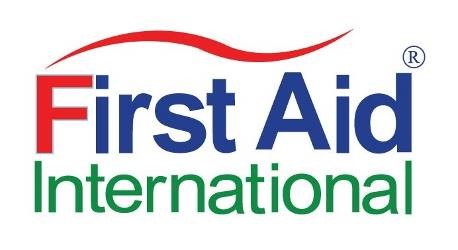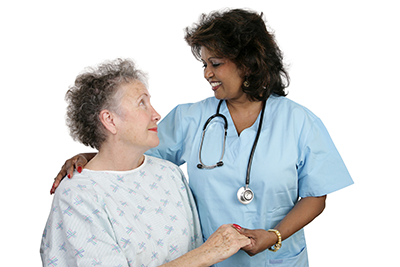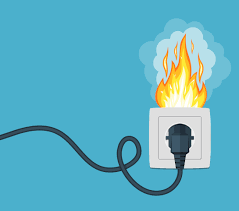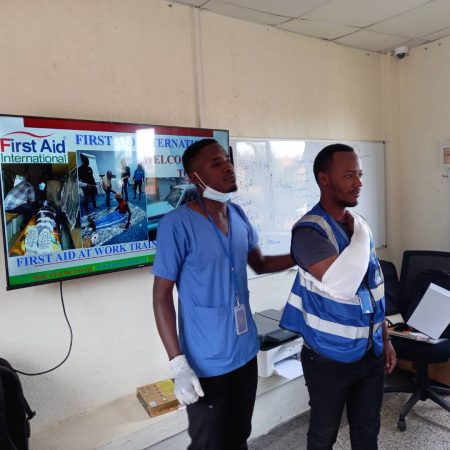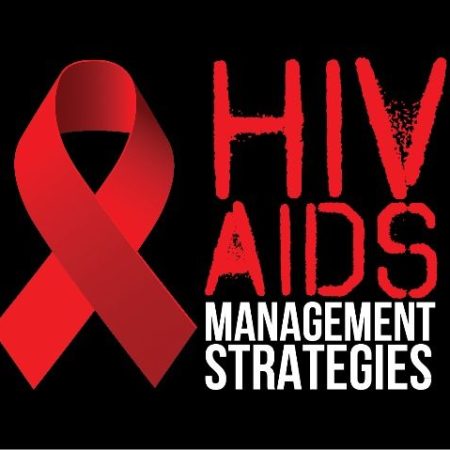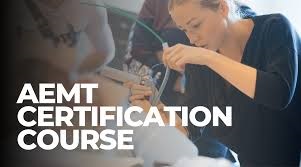This course is intended for those interested in exploring a career as a Home Health Aide or Personal Care Aide. In some countries, HHA or PCA are simply referred to as Health care Assistants.
Course Outline
Module 1: This focuses on what home care is, the history of home care, and who is part of the home
care team. You will be introduced to the variety of tasks a Home Health Aide/Personal Care Aide may perform
and the important role they play on the home care team.
Module 2: This has three sections. The first section focuses on the physical and psychological needs
of human beings, and the influence culture has on the behavior, values, and health care practices of people. In the
second section, you will you will learn how to effectively communicate with and develop a positive working
relationship with patients. You will also learn how to properly document care provisions. In the final section,
you will learn the types of and signs of abuse and how to protect patient rights, such as the right to privacy and
confidentiality.
Module 3: This addresses the special needs facing the elderly patient. You will learn how societal
attitudes about aging influences the well-being and care of elderly patients. You will also learn about the
physical and psychological changes that occur as people age and how to best meet the needs of the elderly
patient.
Module 4: This focuses on the unique needs of children who receive home care services. You
will learn about the physical and psychological changes that occur throughout development from infancy to
adolescence. You will also learn how to help children and teens cope with stress and to develop positive coping
skills.
Module 5: This examines what mental health and mental illness are. Specific mental health issues
such as anxiety, depression, and schizophrenia are addressed, with special focus on how to help the Home Health
Aide/Personal Care Aide effectively work with people who have a mental illness.
Module 6: This discusses what a developmental disability is, what some of the causes are, and how
functioning is affected in the person with a developmental disability. Special attention is paid to learning about
intellectual disabilities, cerebral palsy, autism, and neurological impairments. You will learn how to effectively
work with patients who have a developmental disability to help them be as independent as possible.
Module 7: This examines what a physical disability is, the various causes of physical disabilities, and
the difference between a physical and developmental disability. You will learn about the special adaptations
people with physical disabilities may need to make and how the Home Health Aide/Personal Care Aide can best
work with people with a physical disability.
Module 8: This addresses the basics of nutrition. You will learn about the important role the major
nutrients such as carbohydrates, protein, and fats play in people’s physical well-being. You will learn how to
plan nutritious meals using the USDA’s ChooseMyPlate guidelines. The various diets such as low salt, low fat,
vegetarian, gluten-free, and mechanical diets for people with swallowing difficulties will be covered. You will
also learn food preparation techniques and about food safety.
Module 9: This examines how the Home Health Aide/Personal Care Aide can help patients
effectively manage their money and develop a budget. You will learn how to help a patient track expenses, and
plan a budget based on their income and household expenditures. You will also learn guidelines for helping
patients cut grocery, household, and energy costs.
Module 10: The focus of this chapter is on the importance of and how to perform housekeeping as a Home
Health Aide/Personal Care Aide. You will learn how to use proper body mechanics to prevent injury and how to
develop task lists and to prioritize tasks. You will also learn about various cleaning products and how to perform
specific housekeeping tasks in each room of the home, including: the kitchen, bathroom, bedroom, living room,
and how to launder clothing.
Module 11: This examines the types of injuries that can happen in the home, including: falls, burns,
cuts, poisoning, choking, and fires. You will learn guidelines for preventing these types of injuries as a Home
Health Aide/Personal Care Aide. You will learn basic first aid information for handling these types of injuries.
Special attention will be paid to learning how to deal with serious medical emergencies, such as heart attacks,
seizures, and strokes.
Module 12: This focuses on how to provide personal care for the home care patient. The importance
of infection control and the role of the Home Health Aide/Personal Care Aide in preventing infection
transmission is discussed. Tasks including bathing, teeth and mouth care, dressing and grooming, assisting with
eating, toileting, transferring from a bed to a wheelchair, and assisting patients with the self-administration of
medication are covered. You will also learn how to care for an infant during handling, feeding, and bathing.
Numerous videos are available within this chapter to illustrate concepts discussed.
Course Features
- Lectures 61
- Quizzes 12
- Duration 8 weeks
- Skill level All levels
- Language English
- Students 409
- Assessments Yes
Curriculum
- 12 Sections
- 61 Lessons
- 8 Weeks
- Module 1. Introduction to Home Health Care8
- 1.1Introduction to Home Heath Care10 Minutes
- 1.2What is Home Health Care?20 Minutes
- 1.3History of Home Health Care20 Minutes
- 1.4Who is Part of the Home Health Care Team?40 Minutes
- 1.5Scope of Practice20 Minutes
- 1.6Qualities of Home Health Aides & Personal Care Aides20 Minutes
- 1.7Education & Training Requirements10 Minutes
- 1.8Module 1. Quiz20 Minutes10 Questions
- Module 2. Working Effectively with Home Care Clients13
- 2.1Human Needs, Culture & Diversity20 Minutes
- 2.2Physical Needs40 Minutes
- 2.3Diversity20 Minutes
- 2.4Cultural Awareness & Cultural Competence55 Minutes
- 2.5Introduction to Religions of the World30 Minutes
- 2.6Introduction to Family & Diversity30 Minutes
- 2.7Communication45 Minutes
- 2.8Yes/No Questions20 Minutes
- 2.9Introduction to Active Listening30 Minutes
- 2.10Introduction to Therapeutic Relationship40 Minutes
- 2.11Introduction to Documentation40 Minutes
- 2.12Physical Abuse60 Minutes
- 2.13MODULE 2. Quiz40 Minutes20 Questions
- Module 3. Introduction to Working with the ElderlyThis module is devoted to learning about the special needs facing elderly patients. We will begin by looking at social factors that change as people age and societal attitudes about the aging process. We will then explore all the different body systems and look at how the body and mind changes as a person ages throughout the lifespan. Finally, we will look at special diseases such as cerebrovascular accidents (stroke), Alzheimer’s Disease and Parkinson’s Disease and hosw to work with people who suffer from these disorders.4
- Module 4. Introduction to Working with ChildrenIn this module, we will be discussing the specific needs of children who receive home care services. We will discuss why children may need home care and how the Home Health Aide/Personal Care Aide can best help meet the physical and psychological needs of children and their families. We will explore children's growth and development starting from infancy and ending with adolescence. We will examine how children may react to stress and the various problems that may affect families such as domestic violence, substance abuse, and mental illness. Finally, we will discuss how to help children cope with stress and to strengthen families.5
- Module 5. Introduction to working with people who are mentally ill4
- Module 6. Introduction to working with people with developmental disabilitiesIn this module, we will explore how to work with people with developmental disabilities. We will discuss what it means to have a developmental disability, some of the causes of disability, and how normal functioning can be affected. We will take a closer look at some specific developmental disabilities, such as intellectual disabilities, cerebral palsy, autism, and neurological impairments. We will talk about how to best help meet the needs of a person with a developmental disability by exploring Maslow's Hierarchy of Human Needs and how they apply to a person with a developmental disability. Finally, we will discuss what the role of a Home Health Aide/Personal Care Aide is in the home of a person with a developmental disability.6
- Module 7. Working with people with physical DisabilitiesThis module explores what a physical disability is. We begin by defining physical disability and discussing some of the causes of physical disabilities. Then, we examine how a physical disability is different from a developmental disability and the special adaptations people with physical disabilities may need to make. We will explore the impact of a physical disability on a person's life, taking a closer look at the special stressors a person with a physical disability may have. Finally, we will discuss how the Home Health Aide/Personal Care Aide can best work with a person with a physical disability.2
- Module 8. Food, Nutrition and Meal PreparationProper nutrition is important for all of us. Home Health Aides/Personal Care Aides have very important roles to fill with regard to helping their patients obtain proper nutrition. This module will explore the basics of nutrition. We will discuss all the important types of food that should be in a patient's diet. We will also talk about the type of food that should be avoided. We will learn how to use the USDA's nutrition guidelines by learning how to plan meals using ChooseMyPlate guidelines. We will talk about food preparation and safe food handling. We will also explore what different types of diets mean and what foods should and should not be included in those special diets.5
- Module 9. Family spending and budgetingAssisting a patient and their family to effectively manage their money and to spend a patient's money wisely while planning for meals and shopping may be an important task for a Home Health Aide/Personal Care Aide. This module focuses on how to assist a patient and their family with managing their money. We will discuss how to record expenditures and how to shop effectively in order to reduce costs for the family. Home Health Aides/Personal Care Aides should remember to always follow the Care Plan to decide whether or not they should provide assistance with money management and shopping and they should keep accurate records when they do so.3
- Module 10. Care of the home and personal belongings.Maintaining a clean and organized home is an important task of the Home Health Aide/Personal Care Aide. It helps to provide a home free of infection and pests and promotes good hygiene and physical and psychological well-being. This module will explore the purpose of housekeeping and discuss how housekeeping in a patient's home is different than in one's own home. We will learn the importance of using proper body mechanics and how to prioritize tasks in order to be as efficient as possible. We will explore different types of cleaning products and why each are used. Finally, we will discuss important housekeeping tasks to be completed in each room of the house, as well as how to do laundry.4
- Module 11. First AidThis module will explore different types of injuries that may occur in the home while a HHA/PCA is caring for a patient. This module will teach how to prevent and provide first aid for falls, burns, cuts, poisoning, and choking. It will also cover fire safety and prevention, and what to do in case of a fire. Lastly, it will cover what to do in case of a serious medical emergency. We will pay special attention to how to handle heart attacks, seizures, and strokes.5
- Module 12. Personal CarePersonal care means providing care that is related to the patient's body, appearance, hygiene, and movement.14
- 12.1Introduction40 Minutes
- 12.2Procedure – Donning & Removing Gloves
- 12.3Introduction to Bathing, Back Rubs & Assisting with a Clean Dressing.40 Minutes
- 12.4Procedure – Shampoo in Bed30 Minutes
- 12.5Procedure – Assisting with Changing a Clean (Non-sterile) Dressing40 Minutes
- 12.6Introduction to Dressing and Grooming40 Minutes
- 12.7Introduction to Assisting with Elimination40 Minutes
- 12.8Procedure – Assisting with Emptying of the Urinary Drainage Bag40 Minutes
- 12.9Procedure: Proper Body Mechanics40 Minutes
- 12.10Procedure: Turning the Patient in Bed50 Minutes
- 12.11Procedure: Helping a Patient to Stand50 Minutes
- 12.12Introduction to The Patient’s Environment40 Minutes
- 12.13Positioning the Infant for Feeding & Feeding the Infant50 Minutes
- 12.14Module 12. Quiz20 Minutes10 Questions
